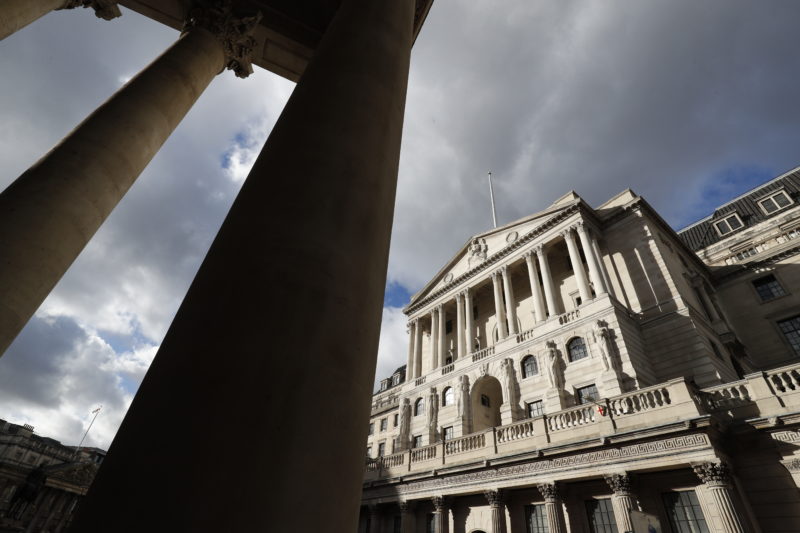BoE slashes UK growth forecast on eve of Brexit
The Bank of England chopped its growth forecast for this year but declined to cut interest rates to boost the economy (Adrian DENNIS)
London (AFP) – The Bank of England on Thursday slashed its estimates for UK economic growth this year and next, one day before the country exits the European Union.
It came as BoE policymakers, in governor Mark Carney’s final monetary policy committee (MPC) meeting, voted to keep its main interest rate at 0.75 percent by a 7-2 majority.
“The question facing the MPC at this meeting was whether the new decade would start with a bang,” Carney told a press conference, adding that he had “no regrets” over his monetary policy record at the BoE since taking the reins in 2013.
Some analysts had expected the Canada-born central banker to have joined the ranks of those demanding a quarter-point rate cut to 0.50 percent.
The minutes of the latest BoE meeting showed that two doveish policymakers had cited “downside risks” to the bank’s projections arising from “Brexit uncertainties and a weaker world outlook”.
While not agreeing to a rate cut to help prop up Britain’s economy, the central bank did predict troubles ahead.
The British economy would expand by only 0.8 percent this year, the BoE said, down sharply on its previous 1.2-percent forecast.
In 2021, gross domestic product was expected to grow 1.4 percent, down on November’s estimate of 1.7 percent.
However the decision to keep the cost of borrowing on hold lifted the pound by around half a percent against the dollar and euro.
– ‘Bank buys time’ –
“Given growing expectations of a rate cut this month, the overwhelming vote in favour of holding rates comes as a surprise,” said Deloitte economist Debapratim De.
“The post-election bounce in business sentiment… seems to have bought the bank some time,” he added in reference to the convincing election victory in December for Prime Minister Boris Johnson’s Conservative party that unlocked Brexit.
Britain departs the EU on Friday ahead of an 11-month transition period during which time Johnson’s government will seek to strike new trade deals with the EU and countries worldwide.
Carney — soon to become UN special envoy on climate action and finance — steps down as BoE chief in March.
Andrew Bailey, head of the UK’s Financial Conduct Authority regulator, replaces Carney after the incumbent agreed to put back his departure three times to help steer the British economy through Brexit’s delays.
An economic boost provided by the post-election political stability meanwhile is not expected to have a lasting impact despite government promises of major infrastructure spending.
The near-term health of Britain’s economy will also be dictated by how key events — ongoing US-China trade talks and fallout from the spreading deadly coronavirus — will impact global growth, according to analysts.
Carney, who became a British citizen during his time as BoE governor, took up the post in July 2013 with the UK economy struggling to recover from the global financial crisis and the BoE’s main interest rate at a then record-low 0.50 percent.
Following Britain’s 2016 referendum vote in favour of leaving the European Union, Carney led the central bank in slashing the rate to a new low of 0.25 percent.
It rose back to 0.75 percent to help curb inflation caused by a Brexit-fuelled weak pound pushing up import costs.
Disclaimer: Validity of the above story is for 7 Days from original date of publishing. Source: AFP.


